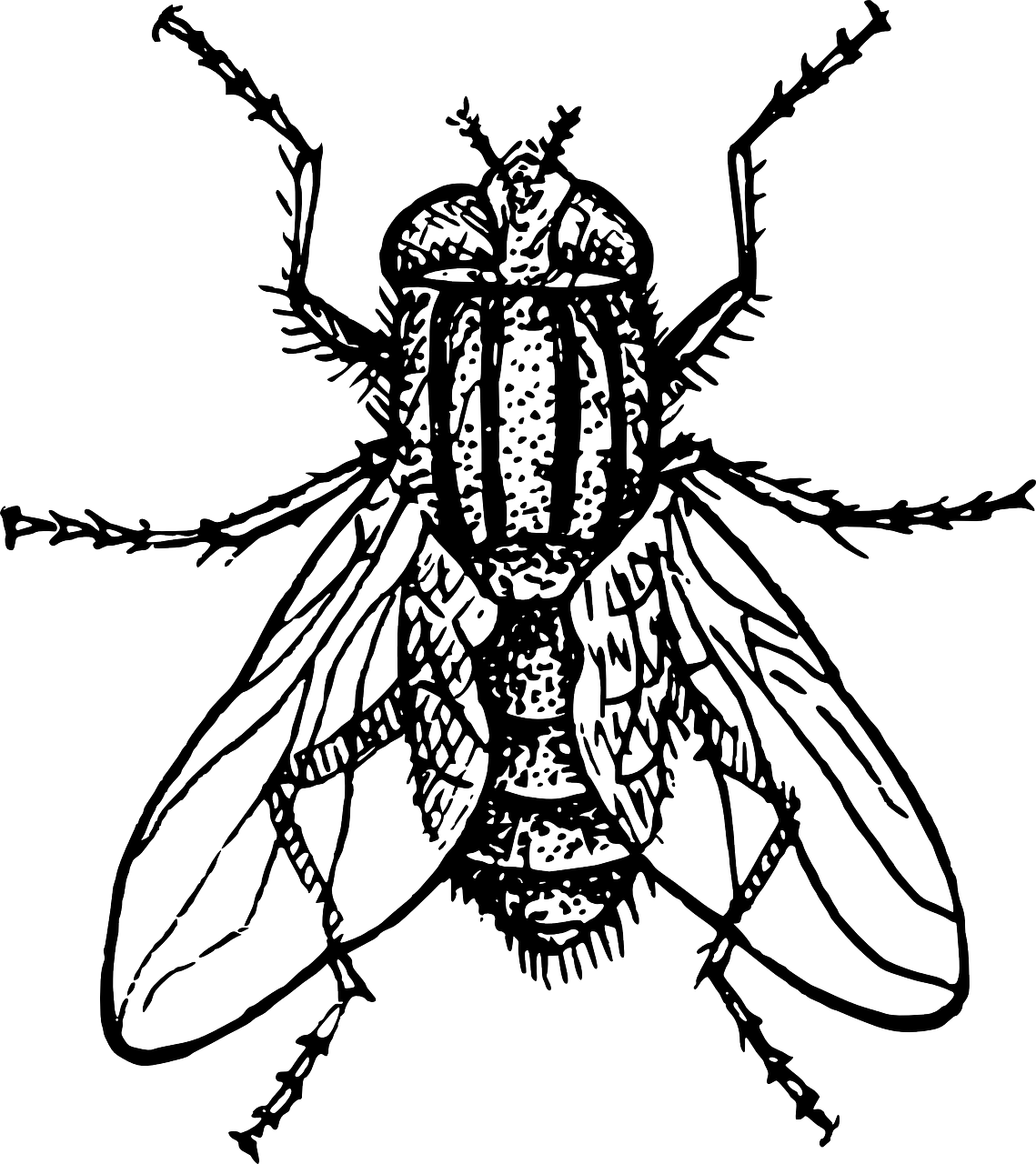Are you curious about the captivating world of zoology? If so, you’ll be thrilled to explore the fascinating field in this article. We’ll provide you with an overview of a career as a zoologist in the USA, giving you valuable insights into this exciting profession. So grab your virtual safari hat, because we’re about to embark on a gripping adventure into the captivating world of zoology!

This image is property of pixabay.com.
1. What is Zoology
Zoology is the scientific study of animals, their behavior, classification, and their interaction with their natural habitats. It is a branch of biology that focuses on understanding the structure, physiology, development, and evolution of animals. Zoologists explore the vast diversity of animal life on Earth, from microscopic organisms to complex vertebrates.
1.1 Definition of Zoology
Zoology, derived from the Greek words “zoon” meaning “animal” and “logos” meaning “knowledge,” can be defined as the scientific study of animals. It encompasses various sub-disciplines such as animal physiology, animal behavior, animal ecology, and animal taxonomy. Zoologists seek to understand the biological processes and characteristics of animals, their habitats, and their interaction with the environment.
1.2 Scope of Zoology
The scope of zoology is incredibly broad, as it encompasses all aspects of animal life. Zoologists study animals from their cellular level to their interactions within ecosystems. This field includes the classification and identification of animal species, their evolutionary history, the physiological and anatomical functioning of their bodies, and their behavior and interactions with other animals and the environment.
1.3 Importance of Zoology
Zoology plays a crucial role in our understanding of the natural world and the conservation of animal species. By studying animals and their behavior, zoologists contribute to the development of medical treatments and advancements in veterinary science. They also aid in preserving biodiversity, managing wildlife populations, and protecting endangered species. Zoological research can provide valuable insights into the interconnectedness of living organisms and their environments, helping to inform conservation efforts and promote sustainable practices.
2. Career Opportunities in Zoology
Zoology offers a wide range of career opportunities for individuals passionate about studying and working with animals. Here are some of the potential career paths in the field of zoology:
2.1 Research Zoologist
Research zoologists conduct in-depth studies and investigations on various animal species. They design and execute research projects to expand our understanding of animal behavior, physiology, genetics, and ecology. Research zoologists often work in academic institutions, research laboratories, or government agencies, contributing to scientific advancements and the development of conservation strategies.
2.2 Wildlife Biologist
Wildlife biologists focus on the study and management of wildlife populations and their habitats. They collect data on population dynamics, migration patterns, and habitat requirements to inform conservation efforts and policy-making. Wildlife biologists work with government agencies, non-profit organizations, and consulting firms to develop conservation plans and ensure the long-term survival of animal species.
2.3 Zookeeper
Zookeepers play a vital role in the care and conservation of animals within zoos and wildlife parks. They provide daily care, enrichment, and medical attention to animals, ensuring their well-being and promoting conservation education. Zookeepers also work closely with public visitors, educating them about animal behaviors, conservation efforts, and the importance of biodiversity.
2.4 Veterinary Medicine
A degree in zoology can serve as a foundation for pursuing a career in veterinary medicine. Zoologists can choose to further their education by attending veterinary school and becoming veterinarians. Veterinarians diagnose and treat diseases and injuries in animals, both domestic and wild. They play a crucial role in maintaining animal health and welfare.
2.5 Conservation Scientist
Conservation scientists work towards the preservation and sustainable management of natural resources, including wildlife and their habitats. They conduct research to assess the impact of human activities on ecosystems, develop conservation plans, and implement strategies to minimize biodiversity loss. Conservation scientists collaborate with government agencies, non-profit organizations, and communities to address environmental issues and promote conservation awareness.
2.6 Marine Biologist
Marine biologists specialize in the study of marine organisms and their ecosystems. They research the behavior, physiology, and ecological relationships of marine species, ranging from microscopic organisms to marine mammals. Marine biologists can work in various settings, including research institutions, government agencies, and conservation organizations, contributing to the understanding and protection of marine life.

This image is property of pixabay.com.
3. Education and Training
To pursue a career in zoology, it is important to acquire the necessary education and training. Here are the typical educational paths for aspiring zoologists:
3.1 Bachelor’s Degree in Zoology
A bachelor’s degree in zoology or a related field is the first step towards a career in zoology. This undergraduate program provides a solid foundation in biology, genetics, animal physiology, ecology, and evolution. Students gain theoretical knowledge and practical skills through coursework, laboratory work, and field experiences. Many universities offer specialized tracks or concentrations within the zoology program, allowing students to focus on specific areas of interest such as marine biology or wildlife conservation.
3.2 Master’s Degree in Zoology
A master’s degree in zoology provides advanced coursework and research opportunities for individuals seeking specialization in a particular area of zoology. This degree allows students to delve deeper into their chosen field of study and develop expertise in areas such as animal behavior, genetics, or conservation biology. A master’s degree is often required for research positions and can enhance job prospects in academia or industry.
3.3 Doctoral Degree in Zoology
For individuals aiming for leadership positions in research, academia, or specialized fields, a doctoral degree is essential. A Ph.D. in zoology involves conducting original research, writing a dissertation, and defending it before a committee of experts. Doctoral programs provide students with the opportunity to make significant contributions to the field through their research projects and prepare them for careers in academia, research institutions, or government agencies.
3.4 Internship and Hands-on Experience
In addition to formal education, gaining hands-on experience through internships, volunteer work, or research assistantships is crucial for aspiring zoologists. These opportunities allow students to apply their knowledge in real-world settings, build practical skills, and network with professionals in the field. Internships and hands-on experience can further enhance job prospects and provide valuable insights into potential career paths within zoology.
4. Skills and Qualities Required
A successful career in zoology requires a combination of academic knowledge, technical skills, and personal qualities. Here are some essential skills and qualities for aspiring zoologists:
4.1 Knowledge of Animal Behavior and Physiology
Understanding animal behavior and physiology is fundamental for zoologists. They should have a deep knowledge of animal anatomy, reproductive processes, feeding habits, and sensory mechanisms. This knowledge enables zoologists to study and interpret animal behavior patterns, contribute to species conservation, and make informed decisions regarding animal welfare.
4.2 Analytical and Scientific Skills
Zoologists need strong analytical and scientific skills to design and conduct research experiments, analyze data, and draw conclusions. They must be proficient in various research techniques, statistical analysis, and data interpretation. These skills allow zoologists to contribute to the advancement of scientific knowledge and make evidence-based recommendations for conservation and management strategies.
4.3 Communication and Interpersonal Skills
Effective communication skills are essential for zoologists, as they often collaborate with colleagues, present research findings, and interact with the public. Zoologists should be able to convey complex scientific concepts in a clear and understandable manner, both orally and in writing. They should also possess strong interpersonal skills to work effectively in interdisciplinary teams and engage with stakeholders, including policymakers, conservationists, and the general public.
4.4 Physical Stamina and Outdoor Skills
Zoologists often work in challenging environments, conducting field research and studying animals in their natural habitats. They may need to endure long hours of fieldwork, hike through rugged terrains, and withstand various weather conditions. Physical stamina and outdoor skills, such as navigation and wilderness survival, are advantageous for zoologists working in the field.

This image is property of pixabay.com.
5. Work Environment and Job Outlook
Zoologists work in a variety of settings depending on their area of specialization. They may find employment in academic institutions, research laboratories, government agencies, zoos and aquariums, conservation organizations, or consulting firms. The job outlook for zoologists is generally positive, with opportunities for growth and advancement in research, wildlife management, conservation, and environmental consulting.
5.1 Work Environment for Zoologists
Zoologists may split their time between indoor laboratories and outdoor fieldwork. Fieldwork often involves traveling to different locations, conducting surveys, collecting data, and studying animals in their natural habitats. In the laboratory, zoologists analyze collected samples, conduct experiments, and process data. They also spend time in offices, writing research papers, grant proposals, and conducting administrative tasks related to their work.
5.2 Job Outlook and Salary Range
The job outlook for zoologists varies depending on their specialization and the demand for their expertise. Overall, the demand for zoologists is projected to grow at a rate that is consistent with the average for all occupations. Job opportunities are expected to arise from the need for conservation efforts, wildlife management, and scientific research. The salary range for zoologists also varies based on factors such as education level, experience, and job location. On average, zoologists earn a median annual wage of around $63,420.
6. Current Research and Discoveries
Zoological research continually expands our understanding of animal life, leading to new discoveries and insights. Here are some areas of current research and noteworthy findings in zoology:
6.1 Genetic Studies and DNA Analysis
Advancements in DNA analysis techniques have revolutionized the field of zoology. Genetic studies allow scientists to explore the relationships between different species, unravel the mysteries of evolution, and identify genetic variations that contribute to specific traits or diseases. DNA analysis has also been utilized in wildlife forensics to combat illegal wildlife trade and track endangered species.
6.2 Behavior and Social Structures of Wild Animals
Researchers are fascinated by the complex behaviors and social structures exhibited by wild animals. Studies on animal behavior provide insights into mating rituals, communication methods, hunting strategies, and social hierarchies. Observations of animals in their natural habitats reveal intricate social interactions and cooperative behaviors, shedding light on the evolutionary significance of these behaviors.
6.3 Conservation Efforts and Endangered Species Protection
Conservation efforts have become increasingly vital in the face of habitat destruction, climate change, and the decline of many animal species. Zoologists play a critical role in identifying endangered species, monitoring population trends, and implementing conservation strategies. Current research focuses on developing effective conservation methods, reintroducing species into the wild, and understanding the ecological impacts of conservation actions.
6.4 Impact of Climate Change on Wildlife
Climate change poses significant challenges for wildlife, affecting their habitats, migration patterns, and interactions with other species. Zoologists and climate scientists collaborate to investigate the impacts of climate change on animal populations, species distribution, and ecological communities. Understanding these effects is essential for predicting and mitigating the consequences of climate change on biodiversity.
7. Notable Zoologists and Their Contributions
Throughout history, numerous zoologists have made significant contributions to the field through their research and discoveries. Here are a few notable zoologists and their noteworthy contributions:
7.1 Charles Darwin
Charles Darwin is considered one of the most influential figures in the history of zoology. His groundbreaking book “On the Origin of Species” introduced the concept of natural selection and provided a comprehensive explanation for the diversity of life on Earth. Darwin’s theory of evolution has had a profound impact on the field of biology and shaped our understanding of the interconnectedness of all living organisms.
7.2 Jane Goodall
Jane Goodall is renowned for her extensive study of chimpanzees in Tanzania’s Gombe Stream National Park. Her research revolutionized our understanding of primate behavior, revealing the complex social structures and intelligence of chimpanzees. Goodall’s work emphasized the importance of conservation and inspired many to advocate for the protection of great apes and their habitats.
7.3 Dian Fossey
Dian Fossey dedicated her life to the study and conservation of mountain gorillas in Rwanda. Her research shed light on the behavior and social dynamics of these endangered primates. Fossey’s work raised awareness about the threats facing mountain gorillas and led to the establishment of protected areas for their conservation. Tragically, Fossey was murdered in 1985, but her legacy continues to inspire conservation efforts worldwide.
7.4 E.O. Wilson
Edward O. Wilson, commonly known as E.O. Wilson, is an influential biologist and conservationist. He is known for his pioneering work in sociobiology and his advocacy for biodiversity conservation. Wilson’s studies on ant behavior have provided insights into social organization and the role of altruism in evolution. He has been a prominent voice in raising awareness about the importance of protecting Earth’s biodiversity.
8. Ethical Considerations in Zoology
As zoologists engage with animals for research, conservation, and management purposes, ethical considerations are of utmost importance. The following ethical aspects are critical for practicing zoology responsibly:
8.1 Animal Welfare and Ethics
Zoologists must prioritize animal welfare and ensure that research and conservation practices minimize harm and distress to animals. Ethical guidelines and regulations govern animal research, ensuring that animals are treated with care and respect. Zoologists must adhere to these guidelines, adopt humane practices, and consider the ethical implications of their work.
8.2 Balancing Research and Conservation Efforts
A key ethical consideration is striking a balance between the pursuit of scientific knowledge and the conservation of animal species and their habitats. Zoologists should strive to conduct research in a manner that promotes conservation and minimizes any negative impact on wildlife populations. They must consider the potential consequences of their actions and collaborate with conservation organizations to ensure the long-term viability of animal populations.
8.3 Responsible Wildlife Interaction
When studying animals in their natural habitats, zoologists must engage in responsible wildlife interaction. This involves respecting animals’ natural behaviors, maintaining a safe distance, and minimizing disturbance to their habitats. Zoologists must prioritize non-invasive research methods and contribute to the conservation of wildlife by raising awareness about responsible wildlife tourism and the consequences of unethical wildlife interactions.
9. Resources and Organizations for Zoologists
Zoologists can benefit from numerous resources and organizations that support their work and provide access to valuable information and networks. Here are some notable resources for zoologists:
9.1 Professional Associations and Societies
Membership in professional associations and societies is beneficial for zoologists, as it offers opportunities for networking, continuing education, and professional development. Organizations such as the American Society of Zoologists, the Society for Conservation Biology, and the World Association of Zoos and Aquariums provide resources, conferences, and publications that connect zoologists and foster collaboration.
9.2 Journals and Publications
Academic journals and publications are important sources of scientific literature in zoology. Peer-reviewed journals such as the Journal of Zoology, Animal Behavior, and Conservation Biology publish original research, reviews, and case studies. Staying up-to-date with the latest research findings through these publications allows zoologists to enhance their knowledge and contribute to the field.
9.3 Online Databases and Research Tools
Online databases and research tools are valuable resources for zoologists conducting literature reviews, accessing species information, or analyzing data. Platforms such as the Integrated Taxonomic Information System (ITIS), the Global Biodiversity Information Facility (GBIF), and electronic library databases provide zoologists with a wealth of information and research tools that facilitate their work.
10. Conclusion
Zoology offers a captivating and rewarding career path for individuals with a passion for animals and the natural world. From researching animal behavior to contributing to conservation efforts, zoologists play a crucial role in advancing our understanding of the animal kingdom and protecting Earth’s biodiversity. With a solid educational foundation, relevant skills, and a commitment to ethical practices, you can embark on a fascinating journey in the field of zoology. Explore the wonders of zoology, deepen your knowledge, and contribute to the conservation and well-being of our diverse animal species.